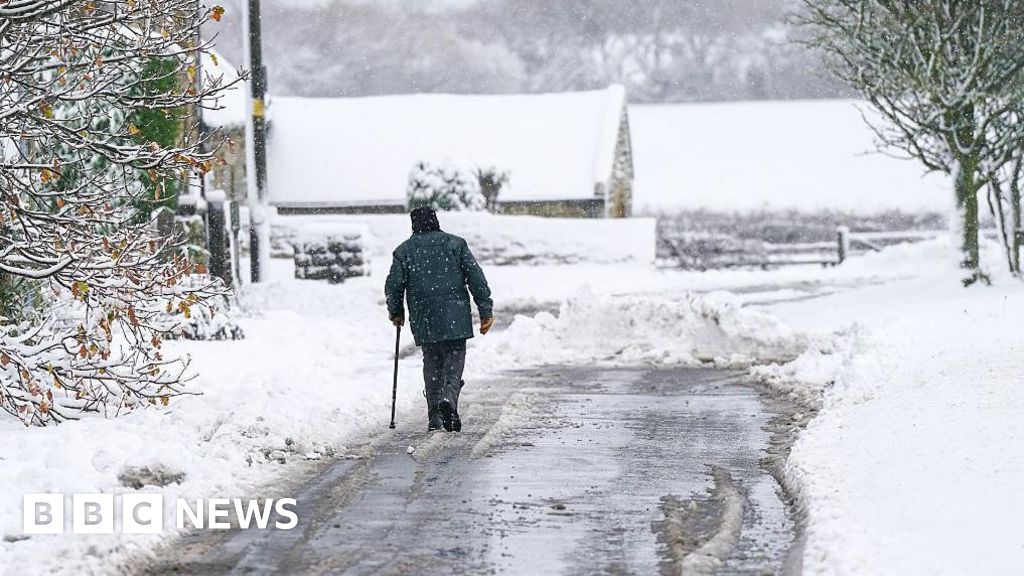Millions of households will see a slight rise in gas and electricity prices at the height of winter, after regulator Ofgem outlined its next price cap.
The 0.2% increase from the current cap will take effect at the start of January, and affect those on variable tariffs in England, Wales and Scotland.
However, prices will be slightly lower than the same period the previous year.
Gas and electricity bills remain relatively high, and the sudden drop in temperature has brought the costs to the forefront of people’s minds.
“While wholesale energy costs are stabilising, they still make up the largest portion of our bills which leaves us open to volatile prices,” said Tim Jarvis, from Ofgem.
But Dame Clare Moriarty, from Citizens Advice, said: “With bills still drastically higher than before the energy crisis, and due to rise again from April, it’s high time for decisions about the longer term.”
The cap sets the maximum price that can be charged for each unit of gas and electricity, not the total bill – so those who use more energy, pay more.
The Ofgem cap is illustrated with a household using a “typical” amount of 11,500 kWh of gas and 2,700 kWh of electricity a year with a single bill for gas and electricity, settled by direct debit.
This illustrative household would see a £3 rise in its annual bill from £1,755 to £1,758.
However, the amount used varies significantly between households, so the best way to calculate the change is to work out the percentage change from your own usual annual bill.
Charities say they are seeing people owing increasing levels of unpaid bills and charges to suppliers.
The total amount owed has reached a record £4.4bn, prompting plans from Ofgem to ensure energy companies write off some of that debt.
Up to £500m could be knocked off the total under plans that the regulator wants to take effect early next year.
Dhara Vyas, chief executive of Energy UK, which represents suppliers, said anyone facing difficulties paying should contact their energy provider as soon as possible.
“We know that far too many people are struggling to pay for the energy they need to use,” she said.
But she added that suppliers could help with efficient appliances, tailoring the tariff to customers’ needs or ensuring people were on the correct benefits.
The government has hinted at extra cost-of-living support in the Budget on 26 November.
One option said to be under consideration is removing VAT from energy bills, which would cut approximately £80 from annual bills.
Energy Minister Martin McCluskey said: “We know that energy bills remain too high. That is why we are taking immediate action, with millions more families receiving £150 off their bills through the expanded Warm Home Discount scheme this winter.”
However, analysts say the main driver of energy bills is shifting from sky-high wholesale prices to the cost of overhauling and maintaining the country’s energy networks.
In the meantime, as the cold weather sets in, various tips are available to keep people warm while controlling costs, including clothing, insulation and heating rooms people are in rather than the whole home.
